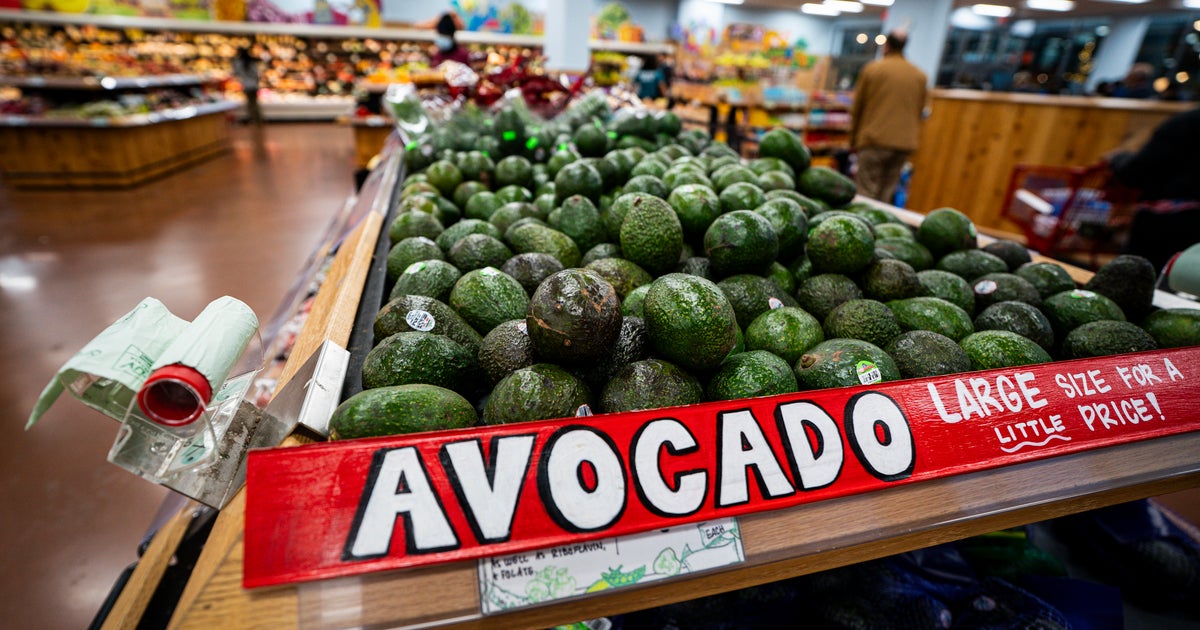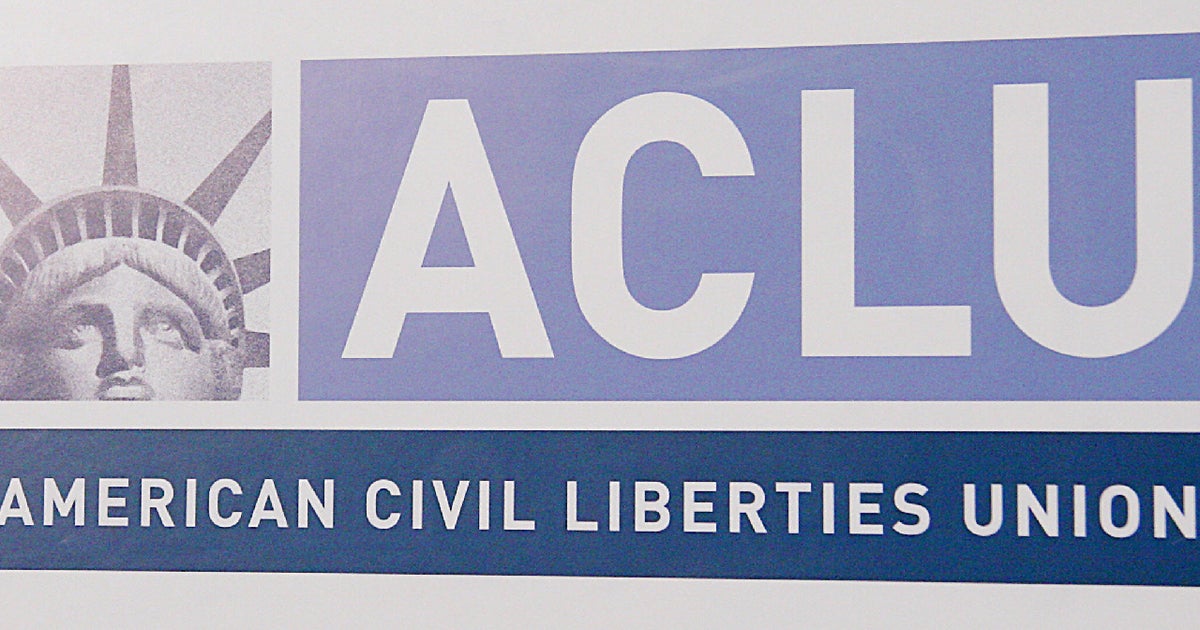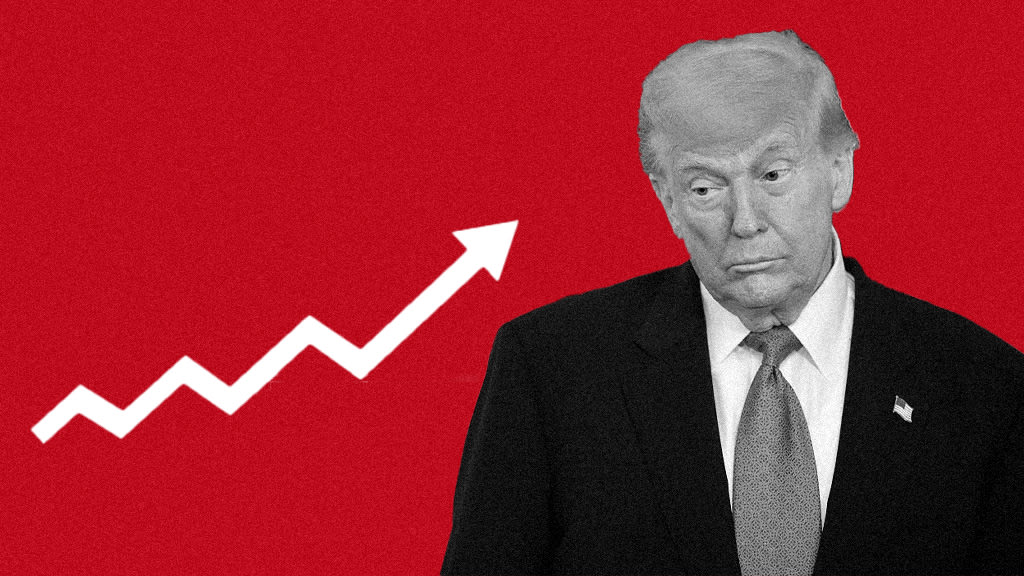Stocks wobble lower as U.S. bans Russian oil imports
Stocks swung, oil prices jumped and the price of nickel surged so much that trading for it was shut on Tuesday, as the U.S. banned imports of oil from Russia and the economic fallout from its invasion of Ukraine kept rocking markets.
The S&P 500 fell 30 points, or 0.7%, on the day. That extended a three-day slide where worries about a possible, painful combination of higher inflation and a slowing economy triggered the index's worst day in 16 months.
The Nasdaq composite sank 0.3% and is down more than 20% since November, putting the tech-heavy index in "correction" territory. The Dow Jones Industrial Average also lost ground, falling 185 points, or 0.6%, to close at 32,633.
At the center of Wall Street's wild recent swings has been the price of oil, which has surged on worries global supplies will be upended because Russia is one of the world's largest producers. After President Joe Biden announced the ban on imports of Russian oil, a barrel of U.S. crude was 6.9% higher at $127.61 per barrel. It got even higher a day before as worries rose about a possible ban, reaching $130.50.
Brent crude, the international standard, rose 7.8% to $132.79.
Already high oil prices have pushed the average price of a gallon of gasoline in the country to a record high. Biden said he hopes to limit the pain for Americans, but he acknowledged that the ban will increase gasoline prices.
"Defending freedom is going to cost us as well," he said.
Biden also said he understood many European allies may not be able to make similar moves, because they are much more dependent on Russian energy supplies. European nations have said they plan to reduce their reliance on Russia for their energy needs, but filling the void without crippling their economies will likely take some time.
Wild trading in nickel, doubling in mere hours
The U.S. ban on Russian oil imports is the latest move by governments and companies around the world to squeeze Russia's finances following its attack of Ukraine. All the penalties raise questions about how high prices will go for oil, natural gas, wheat and other commodities where the region is a major producer. That's in turn adding more pressure to the already high inflation sweeping the world, cranking up its hold on the global economy.
It's also making an already difficult path for the Federal Reserve and other central banks around the world even more treacherous. They've been hoping to raise interest rates enough to push down high inflation, but not so much as to cause a recession.
All the uncertainty has led to wild trading across markets for commodities, where challenges for supplies are colliding with strengthening demand as the global economy comes back from its coronavirus-caused shutdown.
Trading in nickel was suspended Tuesday on the London Metal Exchange after prices doubled to an unprecedented $100,000 per metric ton.
Nickel is used mostly to produce stainless steel and some alloys, but increasingly it is used in batteries, particularly electric vehicle batteries.
Russia is the world's third-biggest nickel producer. And the Russian mining company Nornickel is a major supplier of the high-grade nickel that is used in electric vehicles.
Tuesday's spike for nickel forced the LME to shut down electronic and open-outcry, or floor trading. Trading in nickel will not resume Tuesday, and the halt could last longer than that "given the geopolitical situation which underlies recent price moves," the LME said Tuesday.
One Wall Street winner: Oil stocks
In Asia, most stock indexes fell, with Japan's Nikkei 225 down 1.7%. European stocks swung from early losses to gains and back, and the French CAC 40 fell 0.3%.
The price of gold — a measure of nervousness on Wall Street — rose 3.5% to $2,064.90 per ounce.
Treasury yields climbed, with the 10-year Treasury's yield up to 1.85% from 1.75% late Monday.
They've swung sharply following the invasion of Ukraine. Downward pressure is coming from investors looking for safer places to park their money, and higher prices for Treasurys push down their yields. Pushing upward, meanwhile, is all the pressure from expectations for higher inflation as prices for oil and other commodities soar.
Higher interest rates drag on all kinds of investments, but high-growth stocks seen as relatively expensive can take some of the hardest hits. Amazon, Microsoft and Apple were all down at least 1.3%.
On the opposite end were oil-related companies, which were benefiting from higher crude prices. Chevron jumped 7.2%, Exxon Mobil rose 5% and Schlumberger leaped 9.6%.





